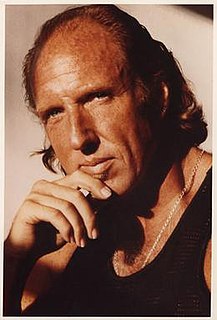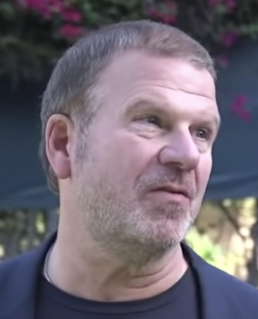A Quote by Tom Selleck
It is scary for an actor when you get hired as a lead. No matter what the plot is, it is your job to do something interesting enough to make them want to get inside the lead character's head.
Related Quotes
If you're a lead singer, then you can't afford to be sensitive. On stage, everyone looks at the lead singer, even if you don't want them to - in America, they have those massive follow spots on you all the time; it does your head in. So, if you are a lead singer and you don't toughen up, you're in the wrong job, and you have to get out.
I try to treat every job with the exact same level of respect. When I go into it, it doesn't matter what the budget is or who the lead actor is. You should have the same focus and the same drive, and you should have as much empathy for your character and understanding of them as you would, no matter what.
I don't think I want to play title roles. I don't want to be the face on the poster. I don't want that pressure of having the success riding on my shoulders. I just want to play the most interesting parts. I actually think it's incredibly rare to get an interesting female character that is the lead in a film. Usually the character parts are so much more interesting to play.
Get inside her head. Get inside any character's head and ask what they want in this scene. And if you work from the perspective of what they want, there's not going to be any wrong answer. There's going to be some boring answers, but none of them are going to be wrong. As long as she has agency, then you're on the right track.
Leadership: Here is the heart and soul of the matter. If you look to lead, invest at least 30% managing those with authority over you, and 15% managing your peers. Use the remainder to induce those you 'work for' to understand and practice...lead yourself, lead your supervisors, lead your peers, and free your people to do the same. All else is trivia.
There are some scenes that you have to lose in order to win something at the end. A good director will keep pointing you that way, but it is also your job as an actor to understand that there are scenes that you do, particularly when you are the lead, where other people get to come in and steal and you have to let them. I understand that but a good director always reminds you where those moments are.




































